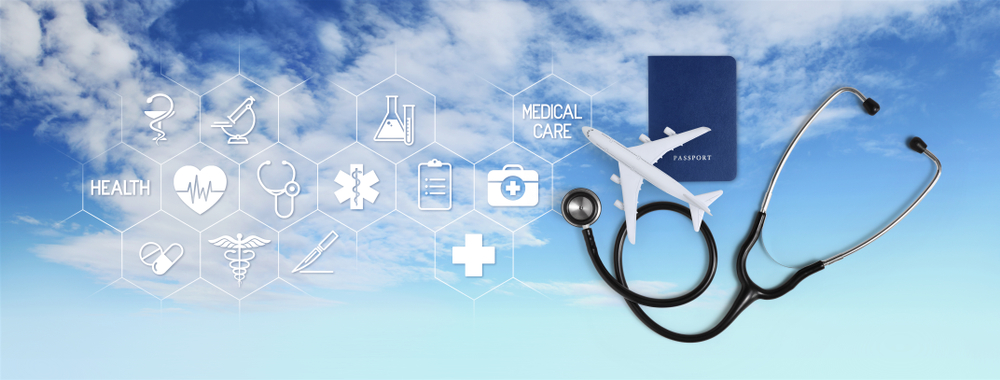Commercial Pilot Health Certificates Requirement
Contact Leopard Aviation to enroll in flight school near Scottsdale or Mesa, AZ. Call 480-605-4539.
Are you ready to jump into the cockpit and start flight training? Not so fast. To become a pilot, you must hold valid medical certificates authorized by the Federal Aviation Administration (FAA).
What are FAA medical certificates, and why do you need them to fly? This article explains the importance of these documents and which medical conditions disqualify you from piloting an aircraft. Consider the following information, then see how you can earn your commercial pilot license with Leopard Aviation.
Why Do Pilots Need Medical Certificates?
In 1958, the federal government passed the FAA Act to improve the national standards of aviation safety. This legislation requires every pilot to have the proper medical clearance to maintain and operate their aircraft safely.
Still, the medical certification process can be challenging to navigate. Sometimes, this bureaucratic system delays pilots from getting into the air for weeks. The FAA recognizes this problem and lists some minimum medical requirements to help streamline the examination and review process.
It would be nearly impossible for doctors to test for every medical condition that could endanger a pilot in the air. That is why the Airman Medical Standards (AMS) only require examinations for some of the highest-risk conditions for incapacitation.
Once the FAA determines that a pilot has no disqualifying medical condition to fly, they will issue a certificate. The government categorizes three medical certificates: First, second, and third class.
First Class Medical Certificate
The FAA awards the first-class medical certificate to airline transport pilots who meet the minimum vision and hearing requirements. For example, an airman must see in 20/20 vision without glasses or contacts.
A pilot may also need to pass a drug test and demonstrate healthy nervous system function to licensed medical examiners.
Every pilot under 40 must renew their first-class medical certificates once a year. Those 40 and above must complete the renewal process every six months.
Second Class Medical Certificate
All commercial pilots (those who transport passengers, cargo, or undelivered checks) must carry valid second-class certificates.
A pilot can earn this medical certificate by completing the same physical examination described above.
Third Class Medical Certificate
Third-class medical certificates have fewer requirements than the previous two. While pilots must still complete a color vision and hearing test, they only need to see 20/40 out of each eye. Additionally, they do not need to complete an electrocardiogram or intermediate vision test to qualify.
These FAA medical certificates apply to private, recreational, and student pilots. Private pilots under 40 must renew this certificate every 60 months. Older aviators will need to complete a medical exam every 24 months.
Airline Pilot Medical Disqualifications
The FAA lists 15 conditions that disqualify pilots from earning a medical certification. Those with a medical history of coronary heart disease, cardiac valve replacement, diabetes, and substance abuse are not eligible. These problems may interfere with airman duties and can endanger the safety of airborne crew and cargo.
If you manage hearing loss and high blood pressure, FAA medical examiners may discourage you from undergoing private pilot training. However, these problems will not automatically disqualify you for an FAA medical certificate unless they indicate significant impairments.
You may be able to seek a special issuance from the Federal Air Surgeon (FAS) if any disqualifying conditions come up during a clinical diagnosis. In this case, a medical flight test would demonstrate your performance in the cockpit.
While this solution may help you pursue a private pilot license, the FAS can accept or deny submissions at their discretion. Furthermore, they may withdraw your certificate if they see evidence that your condition is escalating or you are not seeking medical treatment.
What To Expect After a Medical Examination
You can simplify the certification process by choosing an aviation medical examiner to be your advocate. Such individuals can communicate with the FAA directly and hasten your approval.
Keeping copies of all the medical documents you submit is also wise. Getting an FAA medical certificate may take a while if recipients lose or misplace your records. Organize any material you send neatly, and only submit what the FAA requests.
Some airline pilots wait six to eight weeks before they receive their pilot certificates. It may be appropriate to contact the FAA for updates on your submissions if it takes longer to hear back.
Train for Your Airline Transport Pilot Certificate
Knowing which medical certificate you need before owning and piloting a personal airplane is essential. At Leopard Aviation, we educate students about standard FAA medical requirements and more with our comprehensive training program.
If you manage hearing loss or wear corrective lenses, we guide you toward the right solutions. Our flight school helps hundreds of pilots prepare for challenges they may face during the airman medical certification process. As leaders in aviation, we promise to provide honest communication during every interaction.
See which commercial pilot careers are available when partnering with our team.
Enroll in flight school at Leopard Aviation today. Call us in Scottsdale or Mesa, AZ., at 480-605-4539.

